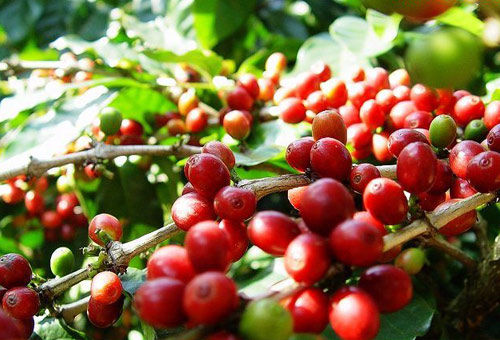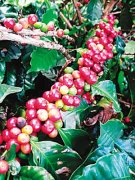Ivory Coast Coffee Coffee World Coffee Coffee cultivation
Industrially produced coffee beans (the kind that can be bought in the supermarket) are often over the best drinking period in the hands of consumers (although they are still within the shelf life), this kind of coffee can certainly not be called fine coffee, in contrast, those ordered roasted coffee have a very short time from roasting to consumers' hands and can maintain the flavor of fresh coffee to the maximum extent. If the raw materials are good, the roasting technology is excellent. This kind of coffee can be called fine coffee.
In terms of quantity, it is one of the largest producers in the world.

C ô te d'Ivoire te d'lvoire has never produced the best quality coffee, and it rarely comes from Arabian coffee trees. In the early 1980s, it was the world's third-largest coffee producer, with an annual output of 5 million bags. Even today, it is still the fifth largest coffee producer in the world, with an annual output of 4.4 million bags. In terms of coffee production, C ô te d'Ivoire is second only to Indonesia (6.8 million bags per year).
In the 1980s Ivorian coffee produced only 250 kilograms per hectare. This is partly due to poverty, but also to the aging of coffee trees. Lack of investment and lack of long-term business plans have also affected coffee production.
The Government of C ô te d'Ivoire has begun to take positive measures to reverse the situation. The National Coffee Management Committee has been reorganized and streamlined, and some production activities have been transferred to private companies for management. The government provides a minimum price guarantee to farmers who produce high-quality coffee and encourages exporters to buy directly from farmers. Today, 80% of exported coffee has found a market in European Community countries, with the main buyers being France and Italy.
It is worth noting that C ô te d'Ivoire is the main centre of coffee smuggling, with as many as 2600 tons of coffee smuggled between 1993 and 1994, mainly through the neighbouring countries of Mali (Mali) and Guinea (Guinea).
Important Notice :
前街咖啡 FrontStreet Coffee has moved to new addredd:
FrontStreet Coffee Address: 315,Donghua East Road,GuangZhou
Tel:020 38364473
- Prev

Introduction to the Flavor characteristics of Fine Coffee beans
Characteristics of boutique coffee beans 1. Boutique coffee beans must be high-quality beans with flawless beans. It should have an outstanding flavor, not without a bad taste, but with a particularly good taste. two。 Boutique coffee beans must be excellent varieties, such as the original bourbon species, mocha species and Tippica species. The coffee beans produced by these trees have a unique aroma and flavor, far beyond the ability of other tree species.
- Next

Kenyan coffee is everyone's favorite product, good coffee, popular coffee single coffee.
Industrially produced coffee beans (the kind that can be bought in the supermarket) cannot be called fine coffee because they are often over the best drinking period (although they are still within the shelf life). Those ordered roasted coffee, which take a short time from roasting to the hands of consumers, can maximize the flavor of fresh coffee and, if the raw materials are good, roast.
Related
- Does Rose Summer choose Blue, Green or Red? Detailed explanation of Rose Summer Coffee plots and Classification in Panamanian Jade Manor
- What is the difference between the origin, producing area, processing plant, cooperative and manor of coffee beans?
- How fine does the espresso powder fit? how to grind the espresso?
- Sca coffee roasting degree color card coffee roasting degree 8 roasting color values what do you mean?
- The practice of lattes: how to make lattes at home
- Introduction to Indonesian Fine Coffee beans-- Java Coffee producing area of Indonesian Arabica Coffee
- How much will the flavor of light and medium roasted rose summer be expressed? What baking level is rose summer suitable for?
- Introduction to the characteristics of washing, sun-drying or wet-planing coffee commonly used in Mantenin, Indonesia
- Price characteristics of Arabica Coffee Bean Starbucks introduction to Manning Coffee Bean Taste producing area Variety Manor
- What is the authentic Yega flavor? What are the flavor characteristics of the really excellent Yejasuffi coffee beans?

